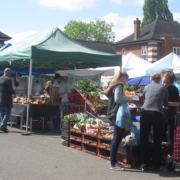
2nd October 2017
INTERVIEW WITH LITHUANIAN IMMIGRANT IN THE WAKE OF BREXIT.
In the aftermath of Brexit, one of Britain’s most widespread political discussions in recent memory, and, with an impressive turnout of 72.2%, Brexit has risen the relevancy and controversy of immigration to new highs. With this in mind, an interview with Lithuanian A-level student and immigrant of six years, Deimante Bortkeviciute, was able to shed some light on the perspectives of emigres.
In your experience, why do people emigrate to other countries?
“A large reason is as a means to escape poverty, as many countries which have a high rate of immigrants may do so due to a declining economy, and people wish to better their financial status in a more developed economy such as that of the UK.
Many people are simply looking for an opportunity to better their families’ lives, and if they are given the chance to do so then they will take it. Some people are unfortunate enough to be born into countries that are poor or have corrupt governments that neglect their people, so seize the opportunity to escape this to improve their quality of life.”
What was the experience like for you in the initial period after moving here?
“Although it was slightly daunting, I felt very welcomed by everyone, especially in school, as I was encouraged and did not feel I was treated any different to the other students. I was supported and given lots of attention and time from teachers to help me learn the language as fast as possible, and all of the students I engaged with were very open minded and interested about my personal experience.”
What are some stereotypes you have encountered, and how has Brexit effected the frequency of stereotyping?
“Since living in the UK, I have been exposed to a few assumptions that [immigrants from Eastern Europe] are not hard working, and only live here to ‘scrounge’ benefits.
Sometimes people assume that immigrants are not politically and culturally educated, but would be surprised that this is not the case if they were to actually discuss these topics with someone who has been subject to this prejudice.
Since the events of Brexit, I do feel as though the frequency of these assumptions and stereotypes has increased, perhaps due to international politics getting more exposure and therefore more focus being put upon those who have migrated [to the UK].
Stereotypes are difficult to escape, as many people who have migrated are not welcomed by the government or the local community when they come home to their country for visiting family or going on holiday. This is simply due to the fact that we are no longer seen as belonging and that we have turned our backs on the country at a time of hardship.”
How do you react to these stereotypes?
“Personally, I don’t take it to heart, as all cultures, nationalities and religions are subject to stereotypes, but you mustn’t let it impact your aspirations and confidence, as people migrate to better their chances at increasing their quality of life, and this opportunity shouldn’t be taken away from them because certain people don’t agree with or understand it.”
What advice would you give to fellow migrants before moving to the UK?
“It is important to be positive and welcome change, as the completely new culture and environment can be a shock at the beginning, but it is important to be resilient and optimistic, as things will begin to fall into place quickly as you adapt to the new environment.”
It was definitely eye-opening to interview someone who has personally experienced immigration, as we could potentially take the time out of our day to discuss with someone their own experience of immigration to further develop our knowledge of what the seemingly frightening prospect is actually like, and understand that the current relevancy of Brexit is not a reason to vilify immigrants by any means.
By Kai Melhuish.


























